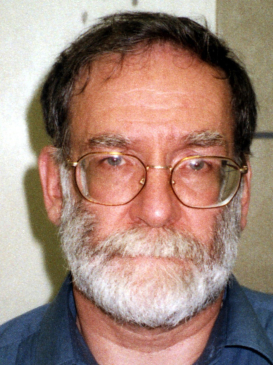Dr Harold Shipman
| Harold Shipman | |
|---|---|

Shipman c. 2000
|
|
| Born |
Harold Frederick Shipman 14 January 1946 Nottingham, England |
| Died | 13 January 2004 (aged 57) HM Prison Wakefield, West Yorkshire, England |
| Cause of death | Suicide by hanging |
| Other names | "Dr Death" "The Angel Of Death" "The Good Doctor" |
| Occupation | General practitioner |
| Criminal penalty | Life imprisonment (Whole life order) plus 4 years for forgery |
| Spouse(s) | Primrose Oxtoby (m. 1966; his death 2004) |
| Children | 4 |
| Details | |
| Victims | 250+ |
|
Span of crimes
|
1975–1998 |
| Country | England |
|
Date apprehended
|
7 September 1998 |
Harold Frederick Shipman (14 January 1946 – 13 January 2004) was an English general practitioner and one of the most prolific serial killers in recorded history. On 31 January 2000, a jury found Shipman guilty of fifteen murders for killing patients under his care. He was sentenced to life imprisonment with the recommendation that he never be released.
The Shipman Inquiry, a two-year-long investigation of all deaths certified by Shipman, which was chaired by Dame Janet Smith, examined Shipman's crimes. The inquiry identified 218 victims and estimated his total victim count at 250, about 80% of whom were elderly women. His youngest confirmed victim was a 41-year-old man, although "significant suspicion" arose concerning patients aged as young as four.
Much of Britain's legal structure concerning health care and medicine was reviewed and modified as a result of Shipman's crimes. He is the only British doctor to have been found guilty of murdering his patients, although other doctors have been acquitted of similar crimes or convicted on lesser charges.
Shipman died on 13 January 2004, one day prior to his 58th birthday, by hanging himself in his cell at Wakefield Prison.
Harold Frederick Shipman was born on the Bestwood council estate in Nottingham, England, the second of the four children of Harold Frederick Shipman (12 May 1914 – 5 January 1985), a lorry driver, and Vera Brittan (23 December 1919 – 21 June 1963). His working-class parents were devout Methodists. Growing up, he proved himself an accomplished rugby player in youth leagues.
Shipman passed his eleven-plus in 1957, moving to High Pavement Grammar School, Nottingham, which he left in 1964. He excelled as a distance runner and in his final year at school, served as vice-captain of the athletics team. Shipman was particularly close to his mother, who died of lung cancer when he was seventeen. Her death came in a manner similar to what later became Shipman's own modus operandi: in the later stages of her disease, she had morphine administered at home by a doctor. Shipman witnessed his mother's pain subside, despite her terminal condition, until her death on 21 June 1963.
...
Wikipedia
